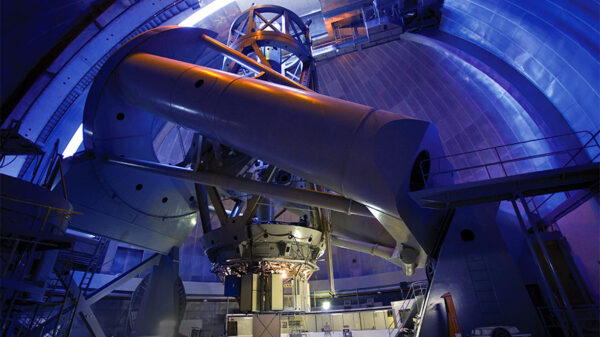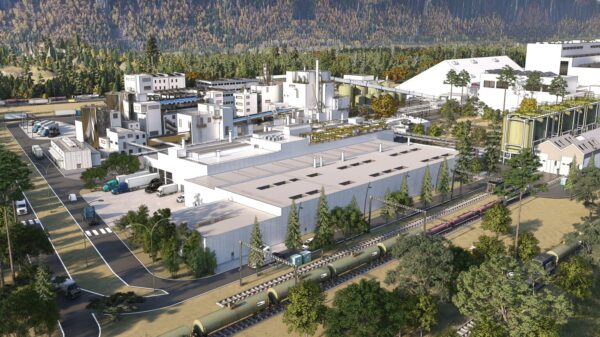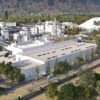As the demand for electric vehicle batteries increases, companies continue to seek innovative ways to source sustainable materials for batteries that last longer and require less time to charge.
The Korean firm POSCO Holdings (KRX: 005490) announced a partnership on Thursday with the quantum computer firm QC Ware Corp. to develop new techniques that simulate battery materials.
Designing a new battery design requires testing, which can be time-consuming and costly. In the race for the energy shift, quantum computers may be a tool to speed up the process and put some companies ahead. Computers are already used to help battery designers simulate viable materials; however, quantum computers could remove limitations, reduce costs and therefore speed up the battery design process.
Using a grant from the Korean government, POSCO and QC Ware will simulate realistic solid-state electrolytes for lithium batteries. The companies will then work to benchmark new quantum computing methods versus the best approaches already in use. The National Research Foundation of Korea (NRF) of the Ministry of Science will support the research, and the collaboration will be spearheaded by POSCO’s AI R&D Laboratories.
“With the world moving toward diverse and flexible energy solutions, it is essential to develop more performant batteries to be integrated in future, sustainable energy grids,” SVP of Quantum Chemistry at QC Ware Corp. Robert Parrish said.
“Computational simulations are playing a growing role in the design of new materials, and this collaboration with POSCO Holdings is essential to QC Ware’s mission: developing quantum algorithms that accelerate the timeline to quantum computers impacting real-world use cases.”
Read more: POSCO Holdings builds lithium hydroxide processing plant in South Korea
Read more: POSCO Holdings inks MOU for lithium development in Alberta
What are quantum computers and why are they useful?
Quantum computers are super-powered calculators that use the rules of quantum physics to process information in a way that regular computers can’t.
Compare a regular computers to a smart librarian looking through one book at a time to find the information they need. Quantum computers, on the other hand, can look at many books at once and find the answers much faster.
They do this by using “quantum bits” or qubits, which can be in multiple states at the same time. It’s like having a magical book that can be open to many pages simultaneously. This ability to explore multiple possibilities simultaneously allows quantum computers to tackle complex problems, like cracking codes or solving puzzles, way quicker than our current computers can.
What are the drawbacks?
Quantum computers come with some challenges, however. First off, they are quite delicate and get easily disturbed by things like temperature changes and other interferences, making it tricky to keep them stable. Using a quantum computer is like balancing a tower of building blocks — and if any block wobbles, the whole thing might collapse. Quantum computers also tend to make mistakes, and quantum researchers are working hard to find ways to fix these errors.
Another thing is they need to be super cold, which makes them a bit like computers that only work in a freezer. Plus, right now, they’re good at some problems but not all, so researchers are still figuring out where they’ll be most useful.
They also consume a lot of energy. The world’s fastest computer, Frontier, spends 8 megawatts while idle, a level that could power thousands of homes. Meanwhile, training a large language model once creates as many carbon emissions as a flight from New York to San Francisco.
As a leading quantum and classical computing software company, QC Ware specializes in machine learning and chemistry simulations. The company is actively contributing to the development of quantum computing solutions that promise to revolutionize how we process information.
Read more: Lithium South Development technical report shows 40% increase in lithium recovery
Read more: Lithium South Development first production well installed at Hombre Muerto lithium project

In 2018, POSCO acquired the Hombre Muerto project in a salt lake in Argentina. Photo via POSCO.
POSCO wants to be a leading player in the EV battery industry
Last year, POSCO launched an investment plan of USD$20 billion for rechargeable battery projects, including acquiring stakes in battery material firms, mineral mines and related facilities. Its goal is to establish a self-sufficient battery metal supply chain and reduce dependence on Chinese companies.
POSCO recently started South Korea’s first lithium hydroxide plant to produce secondary battery materials from Argentina’s saltwater resources. The US$445 million plant aims to have an annual production capacity of 25,000 tons of lithium hydroxide, enough to manufacture 600,000 electric vehicle batteries.
In 2018, POSCO acquired the Hombre Muerto salt lake in Argentina to secure its lithium resources and it is currently working on the initial phase of lithium production from brine. The company plans to expand its lithium operations in Argentina by up to 100,000 tons by 2028. Meanwhile, POSCO has been building a lithium ore factory in the Yulchon Industrial Complex.
Its operations in the Hombre Muerto Salar border some of the world’s largest companies, including Livent Corporation (NYSE: LTHM). Also, its $840 million lithium plant neighbours Lithium South Development Company‘s (TSXV: LIS) (OTCQB: LISMF) (Frankfurt: OGPQ) Hombre Muerto North property.
Lithium South Development Corp. is a sponsor of Mugglehead News coverage
natalia@mugglehead.com














